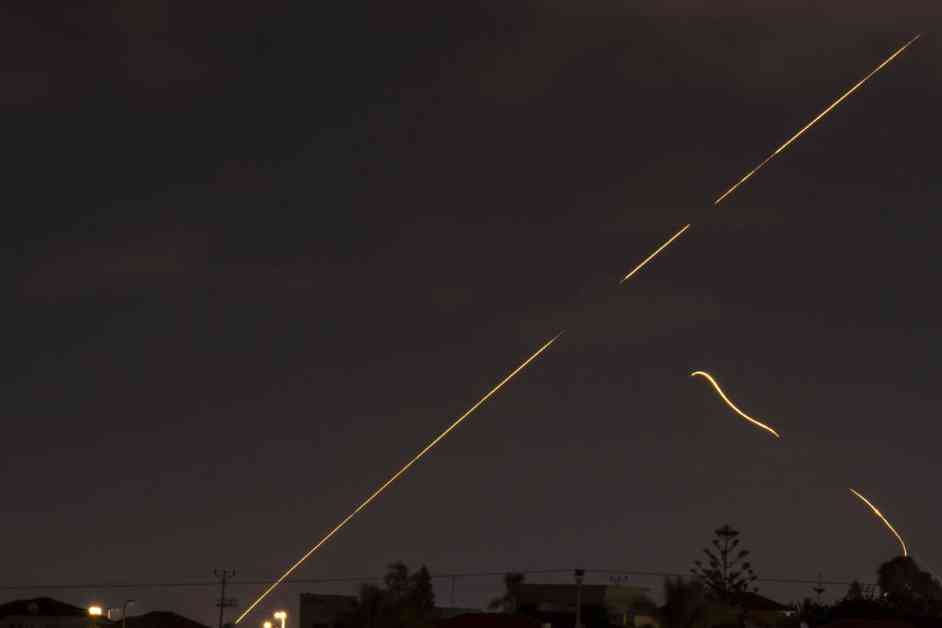Iran launched a series of missile attacks on Israel on Tuesday, marking an escalation in the ongoing conflict between the two nations and their proxies, Hezbollah and Hamas. The attack prompted Israel to order residents to stay close to bomb shelters as air raid sirens blared across the country. While explosions were heard in Tel Aviv and near Jerusalem, it was unclear whether the sounds were from missiles landing or being intercepted by Israeli defenses.
Israeli army spokesman Rear Adm. Daniel Hagari assured that the country’s air defense system was fully operational and capable of detecting and intercepting threats, but cautioned that the defense was not foolproof. As the situation unfolded, orders to seek shelter were broadcasted to Israelis through mobile phones and national television.
Iran claimed responsibility for launching dozens of ballistic missiles at Israel, citing recent deaths of prominent figures like Hezbollah leader Hassan Nasrallah and Revolutionary Guard Gen. Abbas Nilforushan in Israeli airstrikes. The statement issued by Iran warned of more attacks to come, indicating that the recent missile strikes were just the beginning.
The tensions between Israel and Iran reached a critical point as Israeli airstrikes targeted southern Lebanese villages, prompting Hezbollah militants to respond with rocket attacks on Israel. The situation raised concerns of a broader regional conflict, with the United States warning of severe consequences should Iran launch further missile attacks on Israel.
Israeli military operations also included ground raids into southern Lebanon, with video footage released to demonstrate the incursions into Hezbollah-controlled areas. The conflict intensified as Israel issued evacuation warnings to residents near the border and restricted public gatherings in anticipation of more rocket attacks from Hezbollah.
As the situation continues to unfold, the possibility of a wider war involving Iran, the United States, and other regional actors looms large. The recent airstrikes and ground operations have caused casualties and forced hundreds of thousands of people to flee their homes. Both Hezbollah and Hamas, backed by Iran, have shown their readiness to engage in direct confrontation with Israel, raising concerns about the potential for a protracted conflict in the region.
The ongoing developments in the Israel-Iran conflict highlight the complex geopolitical dynamics at play in the Middle East and underscore the urgent need for diplomatic efforts to de-escalate tensions and prevent further violence. As the situation remains fluid, it is essential to closely monitor the evolving crisis and its implications for regional stability.



